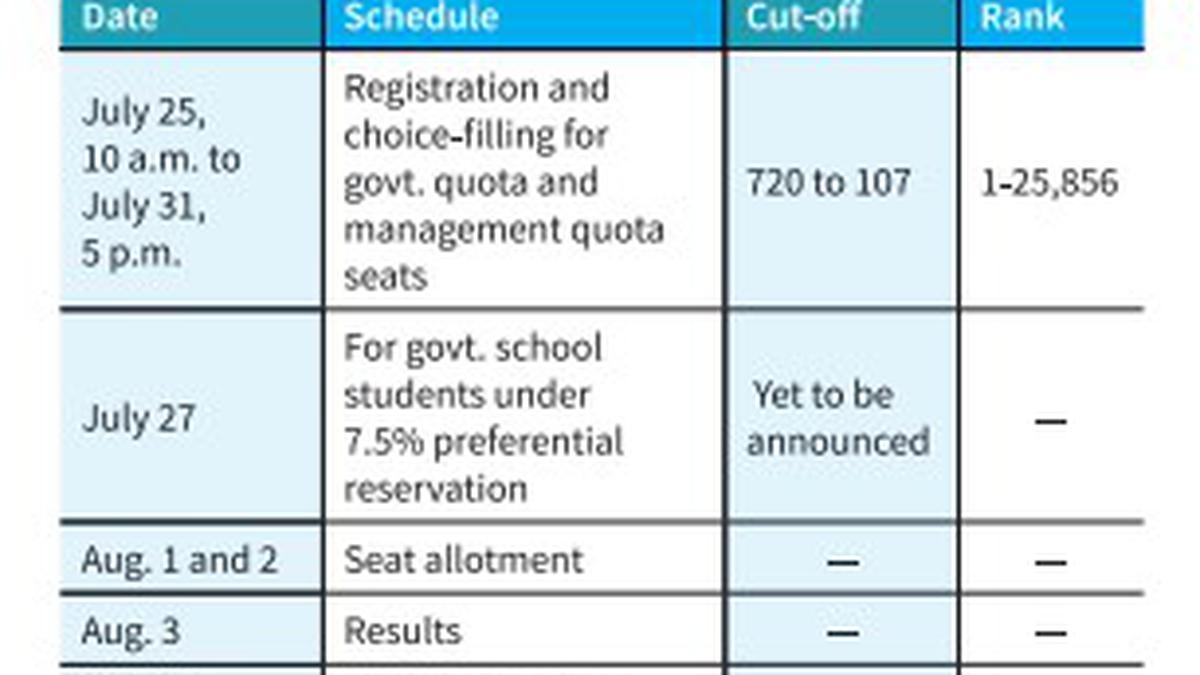
Round I MBBS, BDS online counselling from July 25 to 31
The Hindu
Medical aspirants to begin choice filling on July 25; counselling for govt quota seats on July 27; results on Aug 3; join allotted college by Aug 8. 25,856 eligible for govt quota, 13,179 for management quota; tuition fee for govt quota SF college Rs. 4.50 lakh, management Rs. 13.50 lakh. NRI quota Rs. 24.50 lakh, NRI lapsed Rs. 21.50 lakh. BDS govt quota SF Rs. 2.50 lakh, management Rs. 6 lakh, NRI Rs. 9 lakh.
The first round of counselling for MBBS and BDS aspirants under the government quota in Tamil Nadu will begin at 10 a.m. on July 25. Candidates can fill their choices till 5 p.m., July 31.
Counselling will be held on July 27 for the 7.5% seats reserved horizontally for NEET-qualified government school students, according to the selection committee officials.
As many as 25,856 candidates have been declared eligible to take part in the counselling for the government quota seats and 13,179 candidates for the management quota seats. They will have time to lock their choices till 5 p.m. on July 31, failing which the choices will be locked automatically.
The selection committee will process seat allotment on August 1 and 2 and the results will be announced on August 3. Candidates may download the provisional allotment order from August 4 till 5 p.m. on August 8. Candidates must join the allotted medical colleges by 5 p.m. August 8.
Candidates who do not opt for self-financing colleges in the first round will not be able to participate in the second round for that category.
The selection committee has uploaded the fee structure for the colleges at www.tnhealth.tn.gov.in and www.tnmedicalselection.org.













